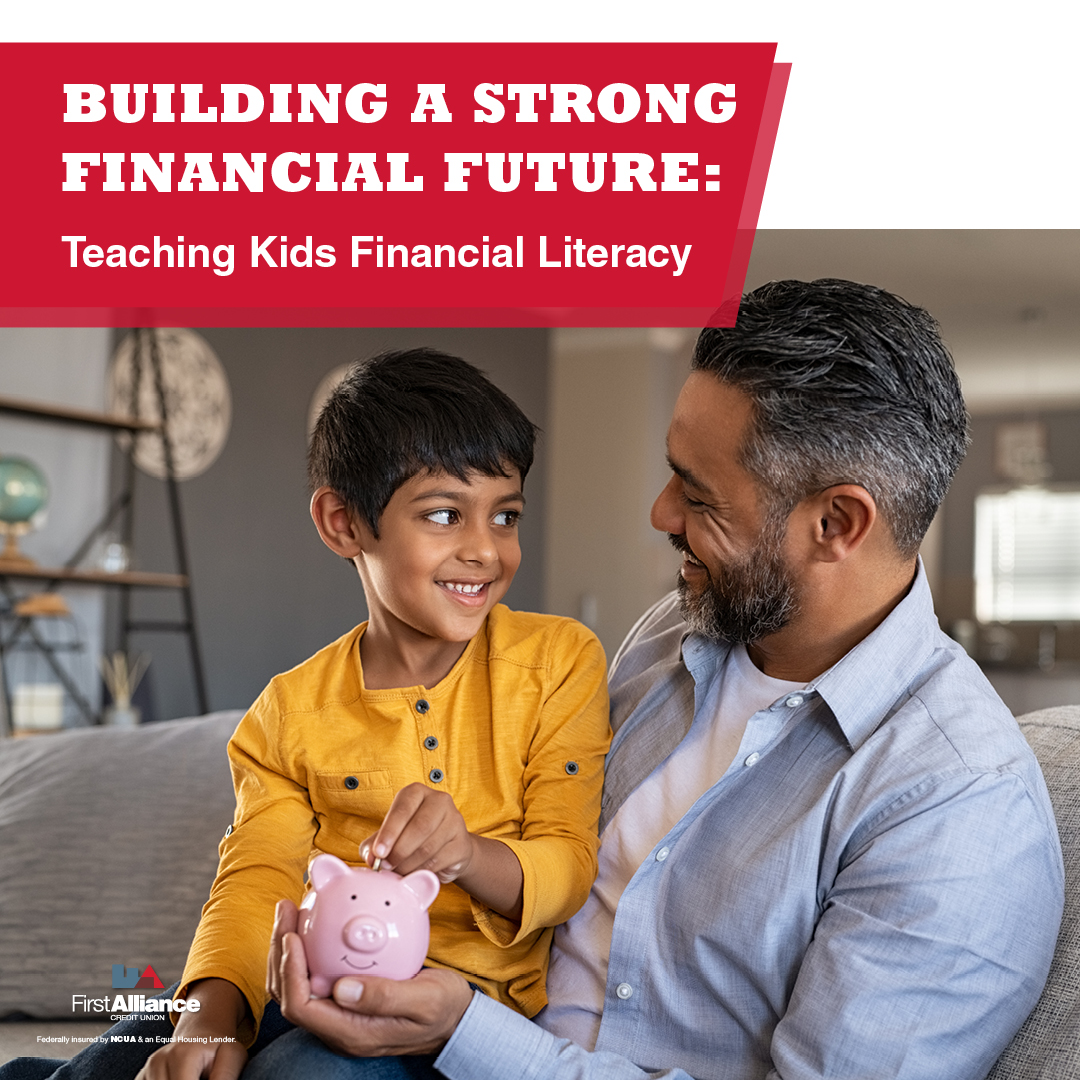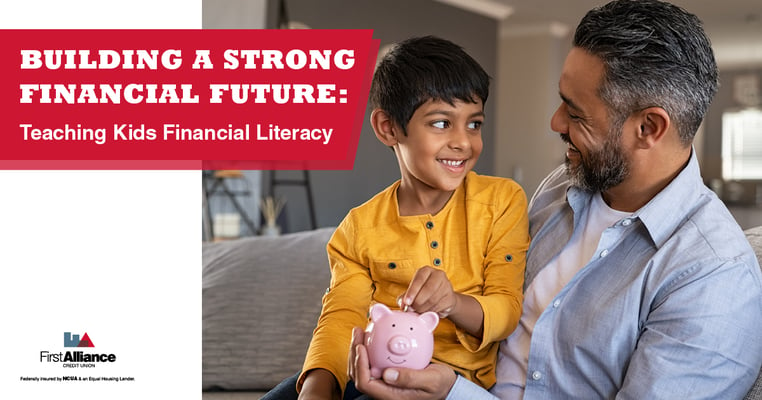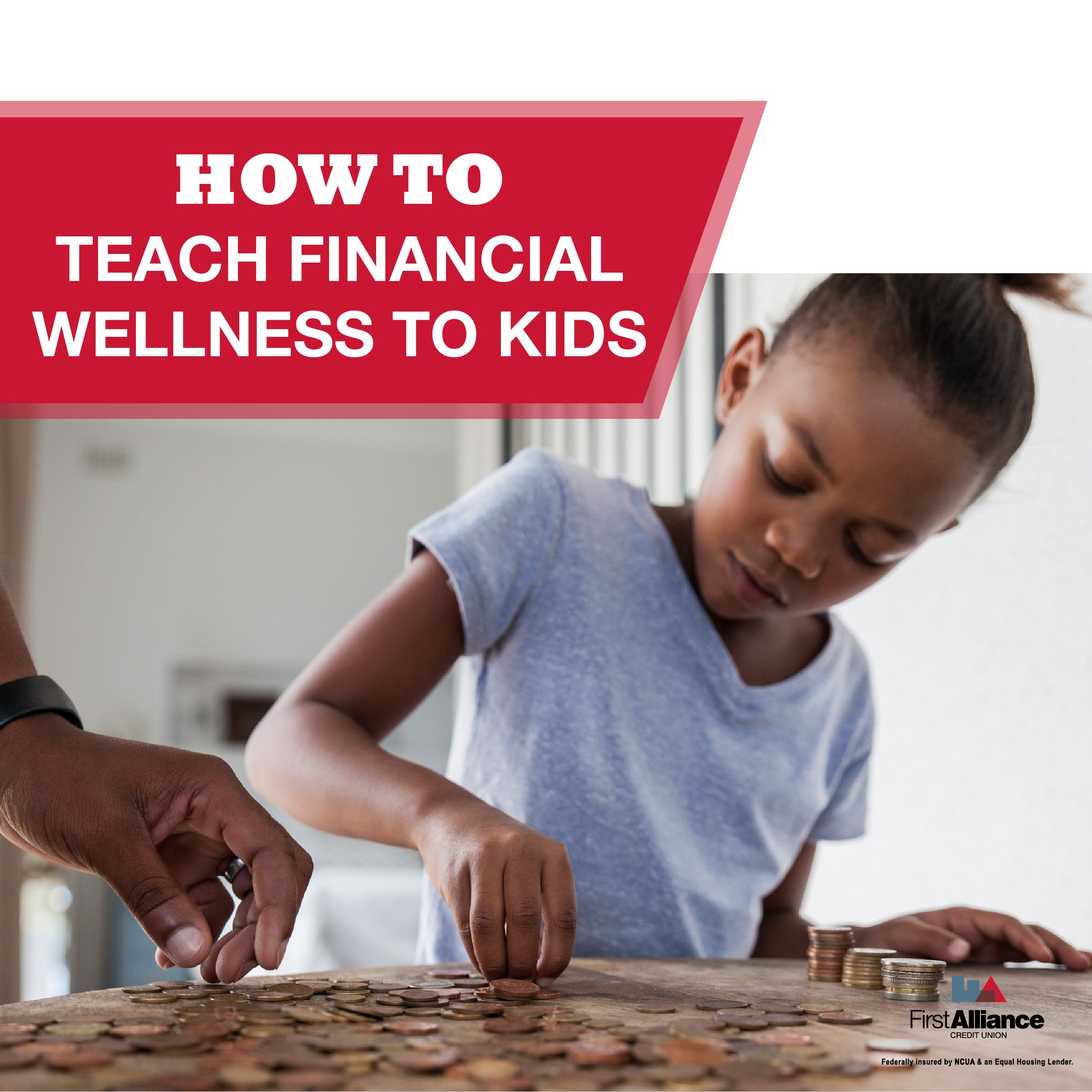Helping Your Kids Deal With a Financial Crisis
Even with unemployment and national debt at all-time highs, it's still shocking when your family faces a job loss or other financial setback. Most of...
2 min read
 Jenna Taubel
:
Apr 18, 2024 2:59:25 PM
Jenna Taubel
:
Apr 18, 2024 2:59:25 PM

April is Youth Month at First Alliance Credit Union, and there's no better time to dive into one of the most crucial topics for young people: financial literacy.
At its core, financial literacy encompasses a wide array of skills and knowledge related to money management. From understanding basic financial concepts to mastering the art of budgeting, saving, and investing, financial literacy equips you with the tools you need to navigate the complex world of finance.
The reasons are manifold. Firstly, it empowers financial independence. When young people grasp the fundamentals of financial management, they become less reliant on others for financial support. Moreover, it builds responsible financial habits early on, such as budgeting and saving, laying a strong foundation for their financial future. Understanding financial concepts also helps in setting realistic financial goals and preparing for unexpected expenses or emergencies.
When it comes to teaching financial literacy to children at different ages, it's important to tailor your approach to their specific developmental stage. By adapting your teaching methods to suit their age and cognitive abilities, you can effectively instill important financial skills and knowledge in children at every stage of their development. Here are a few examples for teaching money management to kids at different ages:
For young children (ages 3 to 8): introducing basic financial concepts through real-life examples, storytelling, and play-based learning can lay a solid foundation.
For preteens (ages 9-12), concepts like allowance, budgeting, and basic banking can be introduced to help them understand the value of money and how to manage it effectively.
For Teenagers (ages 13-18) you can delve into more advanced topics like part-time jobs, saving and investing, and credit and debt management, preparing them for the financial responsibilities they will face as they transition into adulthood.
Teaching these concepts early not only sets children on the path to financial independence but also builds confidence in managing money.
With knowledge comes empowerment — meaning the ability to make informed decisions about money will come easier to your kids. Moreover, your kids will gain a better understanding of risk management, goal setting, and adaptability in financial situations by having experienced managing money when the stakes are lower. This will ultimately lead to positive financial behaviors as a adult, which contributes to reduced stress and anxiety related to money matters later in life.
Navigating financial literacy conversations with kids can seem daunting, but a few strategies can make the process smoother.
These are all effective ways to teach financial literacy in a practical and engaging manner at any age.
In conclusion, teaching kids financial literacy is not just about dollars and cents—it's about empowering the next generation to take control of their financial futures. By equipping them with the necessary skills and knowledge from a young age, you are laying the groundwork for a lifetime of financial well-being and independence.
.jpg)
Even with unemployment and national debt at all-time highs, it's still shocking when your family faces a job loss or other financial setback. Most of...

Practical money management skills learned at an early age can have a lasting impact on the rest of your child’s life. In fact, this is one of the...

If you have children, the odds are you’ve had to figure out how to handle distance learning, thanks to the COVID-19 pandemic. This isn’t an easy time...